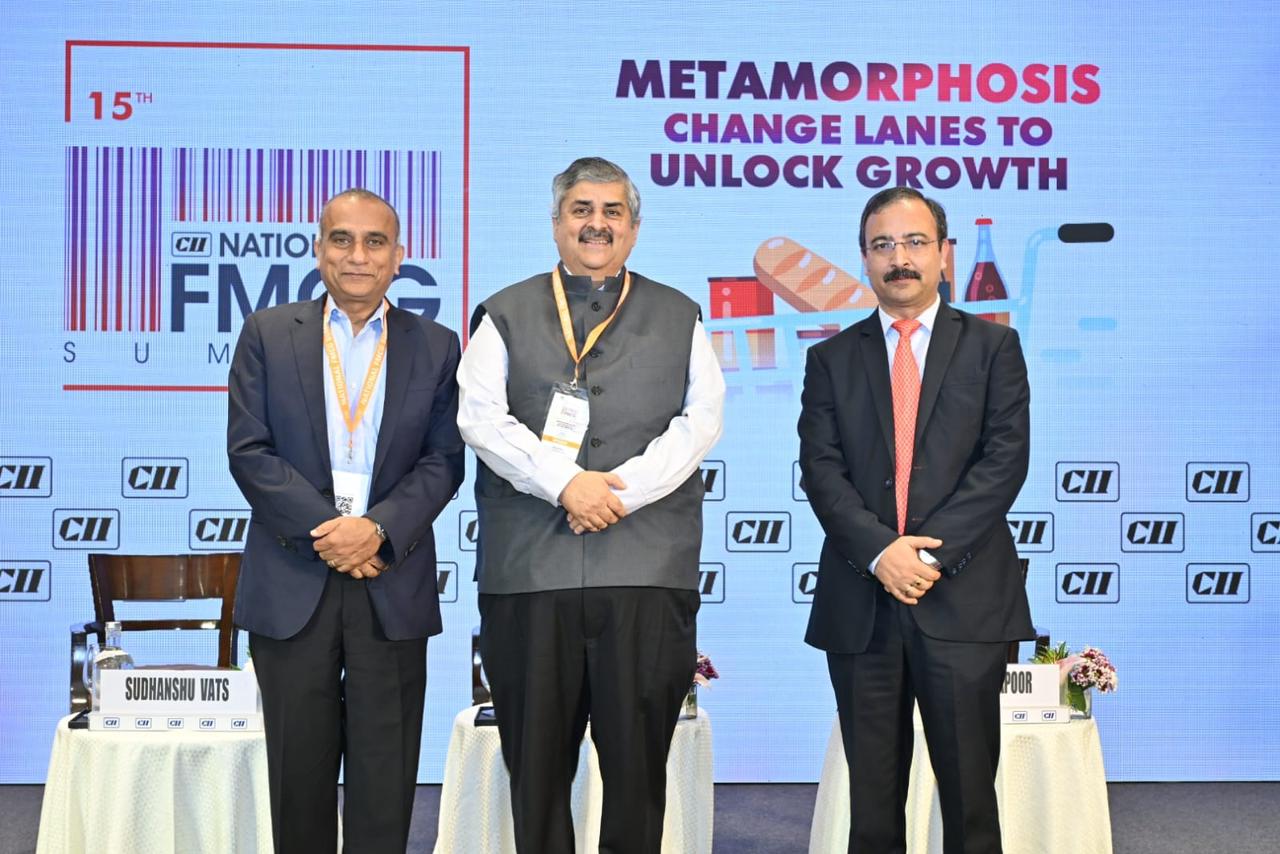CII summit identifies catalyst for metamorphic revival of Indian FMCG sector

FinTech BizNews Service
Mumbai, 11th Dec 2024: CII’s 15th summit titled ‘Metamorphosis: Change Lanes to Unlock Growth’ saw prominent business leaders discuss opportunities in India’s FMCG sector. Representatives from leading brands such as Tata Consumer Products, Britannia Industries, Pidilite Industries, Godrej Consumer, HUL and several others brainstormed at the discussion. The agenda at the summit revolved around transformative strategies to unlock growth potential for the sector.
Mr Bharat Puri, Chairman, CII, FMCG National Committee & MD, Pidilite addressed the rationale of the growth strategy. He said, “Companies have shown that market outperformance is possible through product and distribution innovation. Modern trade and quick-commerce channels are thriving, offering new growth avenues. Insurgent brands are capturing significant growth by winning the hearts of underserved customers. To stay competitive, companies must innovate, invest in digital capabilities, and adopt entrepreneurial operating models, while maintaining robust data strategies for personalized engagement and media effectiveness."
Mr Sudhanshu Vats, Chairman, CII National FMCG Summit and Managing Director Designate, Pidilite industries said, “Indian FMCG has a great potential achieve volume growth which needs strategies such as the ability build brands and exploring the evolving channel dynamics in the retail space. They also have the ability to leverage vast first party-data and analytical tools. Margin expansion is likely to continue in the days to come. There is a huge potential for brands to benefit given macro fundamentals remain very strong.”
Mr Ravi Swarup, Partner and Consumer Products Practice Head at Bain & Company in India said, “Modern channels are now contributing over a quarter of packaged FMCG sales in over one million towns, and growing rapidly. Shopper missions are becoming more frequent, and 60% of these missions are now unplanned. It is an exciting time, and absolutely essential for FMCG companies to re-invent their brands, their pack price architecture, and their approach towards growth in sync with the shifting consumer and channel trends. In the backdrop of challenging overall consumption growth in recent times, this is almost a perfect storm that presents both significant opportunities as well as a situation where prior playbooks on demand generation and fulfillment are no longer valid.”
Mr Vipul Parekh, Co-Founder, BigBasket, said, “The rapid rise of dark stores and quick commerce is reshaping retail dynamics, creating a highly competitive and evolving market. Customers today are affluent yet capricious, willing to trade brand loyalty for convenience, which challenges businesses to adapt quickly. Our strategies must include defending core brands, exploring premiumization, and experimenting with formats to stay relevant to Millennials and Gen-Z, who are discovering brands through quick commerce. As retail formats evolve, organizations need to develop capabilities to thrive across general trade, e-commerce, and modern trade, ensuring brands remain exciting and aligned with consumer expectations.”
Mr Sameer Satpathy, Chief Executive, Personal Care at ITC explained strategies to engage with the consumer. He said, "Quick commerce is transforming how we connect with savvy, well-informed consumers, offering significant opportunities for ITC in premiumization, creating new categories, and delivering convenience. This fast-paced channel demands sharper supply chains, real-time data, and deeper collaboration with e-commerce partners to meet demand waves directly. With partial data from quick commerce overlaid with D2C insights, our understanding of the consumer journey is getting richer, enabling faster and more decentralized decision-making. As the complexity of supply chains and consumer expectations rise, reinventing strategies to deliver value and delight while evolving with the market is paramount."
Mr Kedar Lele said, "While quick commerce is gaining momentum, it’s important to recognize the continued significance of general trade, which has long subsidized other channels. Modern quick commerce channels are more expensive, requiring organizations to accelerate innovation cycles and adapt to variety-seeking, experimental consumers. To thrive, businesses must focus on audience segmentation, portfolio management, and leveraging data science, while strengthening customer management capabilities tailored to modern trade and quick commerce. As this channel expands to middle-plus towns across India, navigating P&L adjustments and seizing new opportunities will be critical for sustainable growth."
Also discussed at CII's ‘Metamorphosis: Change Lanes to Unlock Growth’ were themes around brand-building, challenges faced by established and new brands, and building leadership capabilities. Most leaders concurred on the undeniable need for transformation as the sector moved through a rapidly shifting landscape. In the face of evolving consumer base, rising competition and tech-driven market, leaders highlighted the imperative to recalibrate and reimagine business models to drive growth.